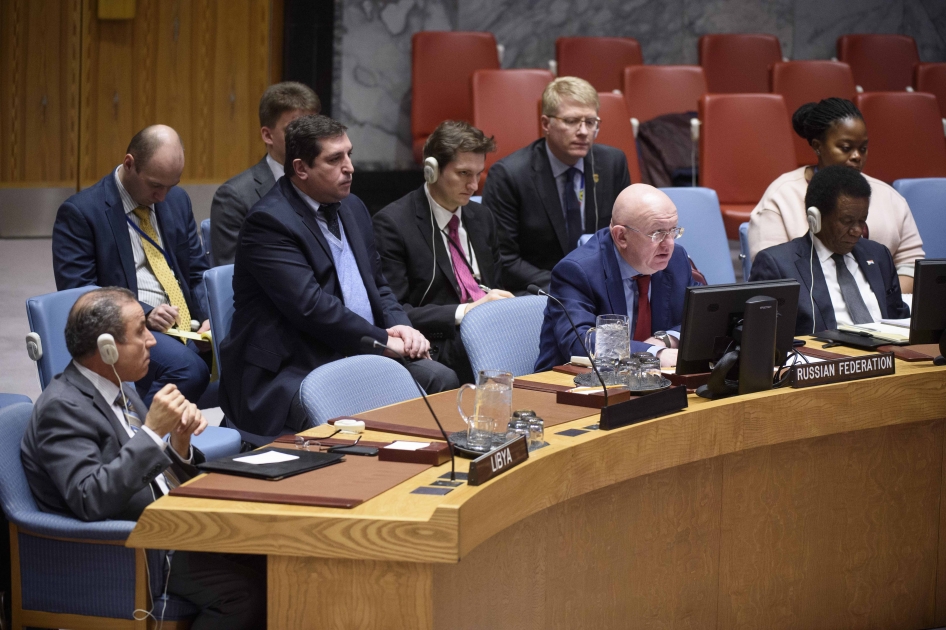Statement by Ambassador Vassily A. Nebenzia, Permanent Representative of the Russian Federation to the United Nations, at the Security Council meeting on Libya
We would like to thank Mr. Ghassan Salamé, Special Representative of the Secretary-General, for his detailed and objective briefing.
Russia supports the steps taken under the auspices of the United Nations to get results in the work of unifying Libya and stabilizing its internal political situation, which are so crucial to improving the situation in the region as a whole. We note the positive effect that the international conference on Libya held in Palermo in November has had in restoring mutual understanding between the two rival forces in the country’s east and west.
In the absence of tangible progress in the intra-Libyan reconciliation process, the parties have been sent a message about the importance of surmounting their differences by a political route within the framework of an inclusive national dialogue based on the Libyan Political Agreement signed in Skhirat and the United Nations action plan for settling the Libyan crisis, with the ultimate goal of consolidating the key political forces and establishing unified State institutions that are fit for purpose.
The Palermo conference enabled the international community to show its commitment to preserving Libya’s sovereignty, territorial integrity and unity. We greatly value Mr. Salamé’s professionalism and steadfast focus on restoring Libyan statehood and support his diligent efforts to promote a national dialogue and prepare for holding a national conference early in 2019. Against that backdrop, it will be crucial to ensure that all Libyan stakeholders show a sense of responsibility for their country’s future and work together to give the settlement process positive momentum. A great many obstacles remain in their path.
We are obliged to conclude that despite all the efforts to promote an intra-Libyan dialogue, any prospects for a speedy settlement of the crisis are barely discernible. The disagreements between the key players in Libya’s political landscape have prevented the reconciliation process launched under the aegis of the United Nations from being implemented.
The situation is complicated by security problems as well as the lack of compromise among the parties. The bloody terrorist attack of 25 December on the Foreign Ministry building was a sad confirmation of that, and we firmly condemn it. Unfortunately, those tragic events and the very recent clashes in the Tripoli area testify to the inadequate control over the situation in Libya and remind us of how crucial the restoration of unified systems of State governance and security forces is.
The problem of the illegal proliferation of weapons in Libya has not diminished, and it is affecting security both in Libya itself and in the Sahara-Sahel region generally. That is why the international stakeholders, particularly the Security Council and its Committee established pursuant to resolution 1970 (2011) concerning Libya, should refrain from taking steps, including any related to application of the arms embargo on Libya, that might make the process of fostering dialogue and cooperation among the key Libyan political forces harder.
We have consistently emphasized the importance of consolidating the international efforts to supply outside support for the intra-Libyan dialogue, along with an understanding of the importance of strengthening the central coordinating role of the United Nations. If that assistance is not harmonized under the auspices of the Security Council, it will be exceedingly difficult to resolve the crisis.
Russia is deeply committed to restoring peace and stability to Libya, which we envisage as a united, independent State playing a major role in international and regional politics. We are ready to advance the political process further and help Mr. Salamé by supporting our trusted contacts with all Libyan parties and encouraging them to focus on seeking compromise for the sake of peace and stability in Libya and the Mediterranean region as a whole. That is our principled position.
